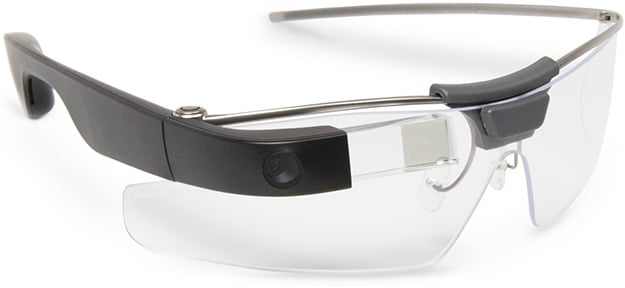Google Patent Details Possible Next-Gen Google Glass Augmented Reality Headset

However, a new patent has surfaced which suggests that Google may working on a next-generation AR device that is similar in concept to its predecessor. The patent was actually published yesterday, and describes a “head-worn augmented reality display.” Attached to the frame of the device is a curved, transparent lens structure that is also reflective.

In the drawings provided in the patent filing, we can see that images are projected from two emitters mounted on the frame. These emitters project an image onto the reflective portion of the lenses, one for each eye. These computer-generated images of course would of course augment what you already see in the real world through the spectacles.
It should be noted that Apple seems very interested in this space as well, with reports last year saying that the Cupertino, California-based company is looking to launch an AR headset in 2020. Apple reportedly has hundreds of engineers working on AR; with some working on the aforementioned AR headset and others working on ARKit for the iPhone.

At this time, it’s thought that the Apple AR headset would incorporate its own SoC along with an AR-centric UI. It’s also possible that the device could also leverage a paired iPhone for offloading some processing operations.
We also would be remiss if we didn’t mention Microsoft’s HoloLens 2 mixed reality headset, which was announced this year at the Mobile World Congress. Each eye is graced with a 2000x1500 resolution display with a 53-degree field of view, and the lightweight headset is partially constructed of carbon fiber. However, given that it is aimed at enterprise customer, the HoloLens 2 is priced at an exorbitant $3,500.
We’d have to imagine that Google’s next-generation AR headset, if it does see the light of day, would likely undercut this price by a fair margin.

